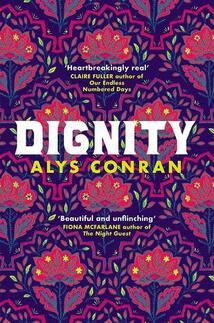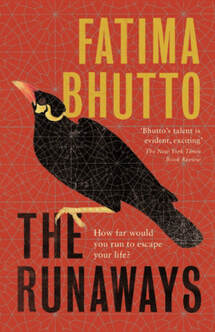Dignity by Alys Conran
While all three characters are beautifully realised, I found Evelyn’s thread the most interesting and Magda’s the most sad. Worn down by idleness, a brutish husband and the pressure to prove the superiority of Britishness, she changes from a lively schoolteacher to a harsh memsahib, indifferent to the daughter she’s been prevented from mothering in a meaningful way. Pity that daughter – Magda of course – who, while making a successful career as a scientist from her need to create order from chaos, struggles with the mess of human relationships. Can Susheela, despite her own problems, get beyond the facade?
It strikes me that few novels about the crazy cruelty of the Raj have come my way since I started reviewing – Belonging a rare instance that comes to mind – and I don’t recall reading many others since Paul Scott’s Raj Quartet (which I must have read a while after its first publication in 1966). Is this due to collective blindness to this part of our heritage, or is it just me?
On a lighter note – and I wouldn’t normally reveal the ending, but I don’t think this counts as a spoiler – I was delighted, so soon after posting about my own gorgeous garden meadows, that the novel ended with wildflowers, both literally and metaphorically. Thanks to publishers Weidenfeld & Nicolson for my review copy.
The Runaways by Fatima Bhutto
Also from Karachi, Monty is a veteran of international travel, spending summers with his parents in Chelsea where, as at home, servants attend to domestic chores. An only child, there’s growing tension between his parents, as his mother discovers religion and his father makes business and the bottle his. Now in his mid teens, Monty has a growing sense that he’s a disappointment to his father, but when a friendship develops with the beautiful girl newly arrived at his private school, he doesn’t worry quite so much about that.
Born and raised in Portsmouth, Sunny is also struggling with parental expectations. His widowed father, a Pakistani immigrant more British than the British, expects a return on his investment in his only son. Sunny has his degree, but doesn’t know what to do with it, just as he doesn’t know what to do with his sexual attraction towards other men. His cousin, Oz, newly returned from Syria, might have the answer to his sense of alienation in a one-way ticket to Turkey and, from there, by bus to Iraq.
In her fourth book, Fatima Bhutto maps the separate journeys of these three young people, each for different reasons mistaking darkness for light. When Monty and Sunny meet up at a jihadi training camp, and embark on a perilous trek across the desert to Nineveh, both nurture a secret sense of betrayal. Anita, meanwhile, has been assigned a separate role in the struggle, more fitting to the fundamentalist interpretation of women.
Like Godsend, which I reviewed earlier this year, The Runaways is a captivating and sympathetic portrayal of the combination of naivety, idealism and disaffection that can seduce young people into lending their minds and bodies to extreme causes, often with catastrophic results. Thanks to Viking Penguin for my review copy.
























 RSS Feed
RSS Feed





















